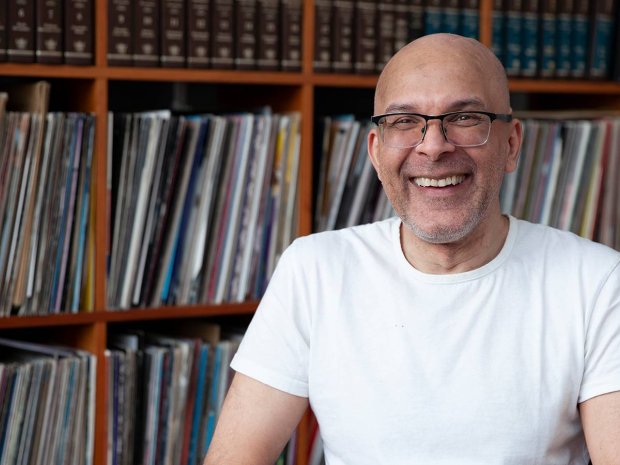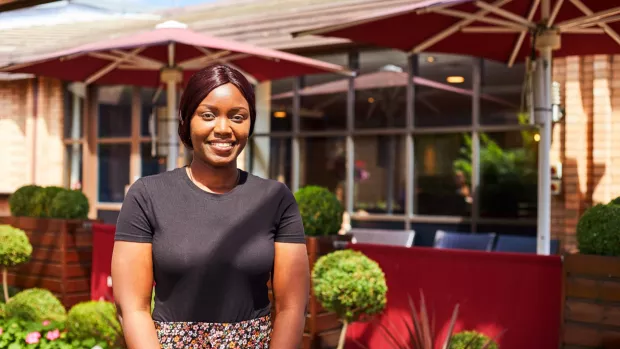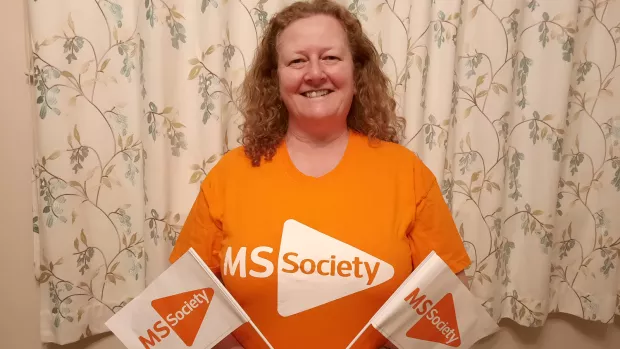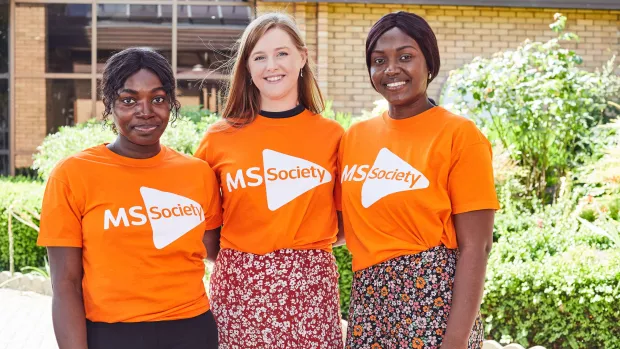
Doing my bit to represent the MS community
Robby started volunteering with us five years ago. He tells us about his involvement in our Equality, Diversity and Inclusion (EDI) Reference Group.
I was first diagnosed with relapsing remitting MS when I was 21. But until I was 37 I had few relapses. I was really active and cycled loads.
After graduating from university, I started a clothing and footwear business. I loved it as I was moderately successful, and I met all sorts of people which appealed to my social nature. When my MS transitioned to secondary progressive at the age of 37, I had to close my business as it was becoming increasingly difficult to run.
Keeping busy and connected to others improves my mental health
I hated not working. From working 70+ hour weeks, to doing nothing wasn’t good for me mentally. It took me three years to get used to it. I studied a little, doing courses in interior design, sociology and finance. And I volunteered for Barnardos and the Samaritans, as I wanted to do something of worth.
I then came across an advert in hospital looking for volunteers for Shift.ms. I decided to go for it as the charity was relevant to me. I did a lot of interviews for them which are on YouTube. This led me to being contacted by the MS Society.
Since then, I’ve been involved in lots of different ways. I’m part of Asian MS (as I’m of Indian descent) and I’ve been involved in creating content for social media and the website. And I’ve been involved in projects such as the online hub developed to support people to run independent social groups. Now I’m part of the Equality, Diversity and Inclusion (EDI) Reference Group.
Helping to shape MS Society’s EDI work
The EDI Reference Group supports the EDI strategy and ensures the voices of people with MS feed directly into the MS Society’s EDI work. The group has 11 members at the moment, but we hope more will join.
The group’s made up of people living with MS. We share our lived experiences and expertise to help shape a number of projects relating to the MS Society’s EDI work. We meet for one hour once a month where we talk through projects and share our opinions, feedback and stories.
We want to ensure that the voices of people living with MS from all backgrounds and ethnicities are being heard throughout the work of the MS Society.
Why EDI is important to me
Being of Indian descent and in a wheelchair, I was really keen to join the EDI Reference Group. In Indian culture, illness can be a taboo subject and can sometimes be seen as a curse. People with MS often keep it a secret from family and friends. And this means they’re not getting the support they should be.
Everyone, no matter what their sexuality, age, gender, background or ethnicity, should have equal access to the information and services they need. I feel that by being part of the EDI Reference Group, I’m doing my bit to represent the MS community, and in particular disabled and Asian people.
What’s coming up and how you can join
This year, the EDI Reference Group is supporting the development of an accessibility checklist to make sure venues and events are accessible for people living with MS. And we’re helping to define the minimum standards of accessibility. I’m particularly looking forward to being able to feed into that, as I use a wheelchair. We’re also helping to support the Research EDI Action Plan as a part of the EDI strategy.
We always welcome new members and recently had some join the group. You don’t need to come from a certain background. As someone who lives with MS, you’re already experienced enough to help shape the MS Society’s work. There’s an advert on the website which you can apply through.
I want to make a positive difference
Whether you’re thinking of joining the EDI Reference Group or volunteering in another way, it’s a great way to keep engaged with people. It’s given me a real sense of purpose and worth. I think everyone leaves a mark on life, and I hope mine’s a good one. If nothing else, I hope volunteering counter balances all the sins I’ve committed, of which there are many…



